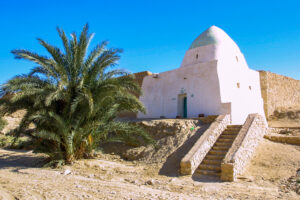
Tamerza, Tunisia
The old village of Tamerza was abandoned in 1969 after 22 days of heavy rain destroyed the traditional mud brick structures.
Rotate to landscape to view slideshow
The Palmerie at Tozeur
With 350,000 date trees, Tozeur’s palm grove is a beautiful oasis, which you can explore by horse-drawn carriage.
You can learn more about Tozeur.

Each morning . . .
our room is filled with a lovely warm glow as the sun comes up over the palmerie.
We are staying at the Residence el-Arich, in Tozeur, a pleasant hotel that backs on to the date palms that grow around this thriving western Tunisian oasis of Tozeur.
We have breakfast on the roof of the hotel and then there is plenty of time afterwards for a walk through the green of the oasis.
Its date picking time. The workers spread a huge tarpaulin on the ground around the trunk and one climbs to the top of the palm to cut the long spindly date stalks and then drops them seven metres to the ground below.
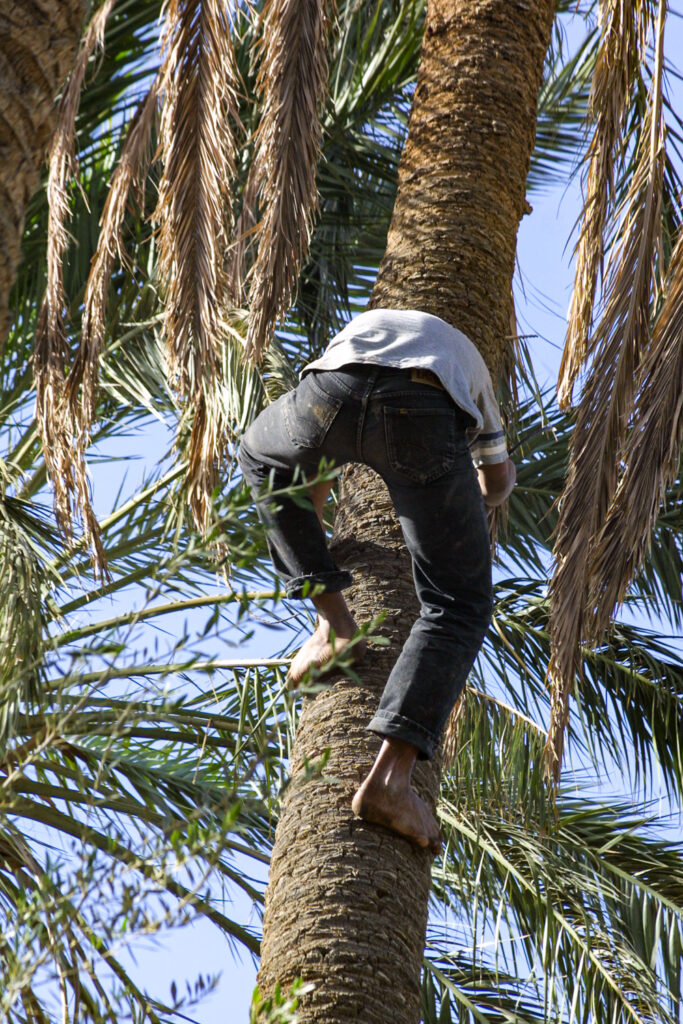
There is plenty to see and do in Tozeur. The old labyrinthine quarter, Ouled el-Hadef, is well worth a visit to see the striking brickwork that sets this town apart. The brick patterning is repeated in the newer part of the town and you can also see it in the unique carpets that come from around this area.
For the shop-till-you-droppers, there are more than enough carpet and souvenir shops, and a government store where you can check what is a reasonable price.
The Zoo du Sahara and Jardin de Paradise are on the southern side of the palmerie, and the walk will let you appreciate the quietness of the oasis, and enjoy the sound of running water and the birds darting around.
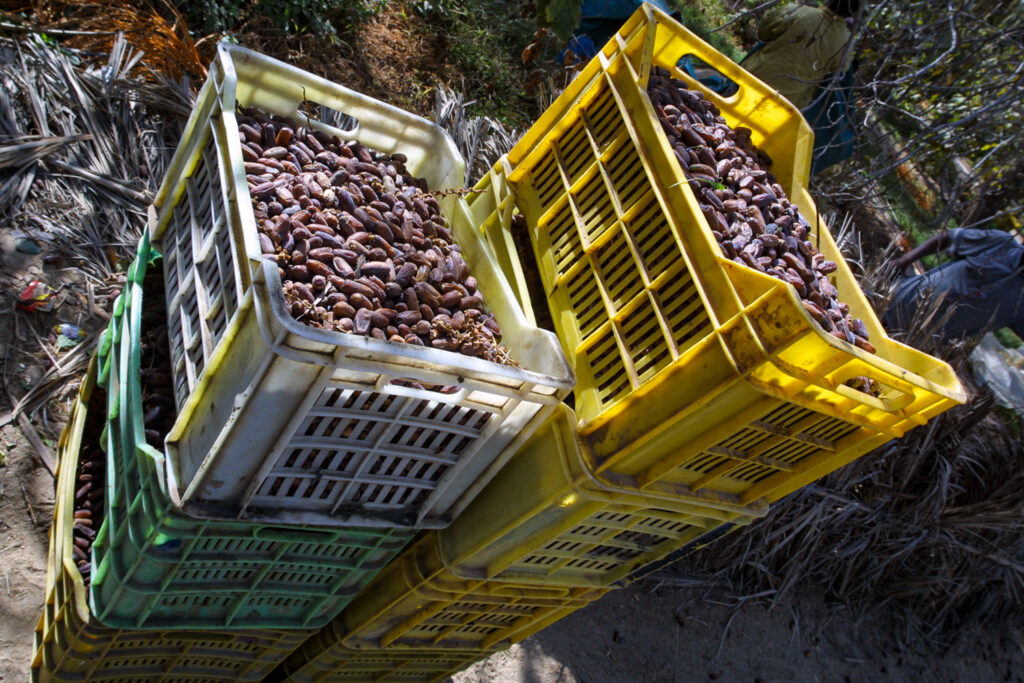
The Museum Dar Charait is a must. Divided into three sections, we visited the ethnographic area that also includes a small art gallery featuring Tunisian painters, and then in another section, we were charmed by the stories of the Arabian Nights.
Our days usually finished at our local restaurant where Mohamed looked after our needs, and although the non-alcoholic beer made the water taste good, the food was excellent.
From Tozeur you can make easy trips to the nearby oases of Tamerza and Nefta, and you are not too far away from the Chott el-Jerrid, the largest of Tunisia’s dry salt lakes.
But those trips are for another day. Tonight we will just sit and watch the sunset.
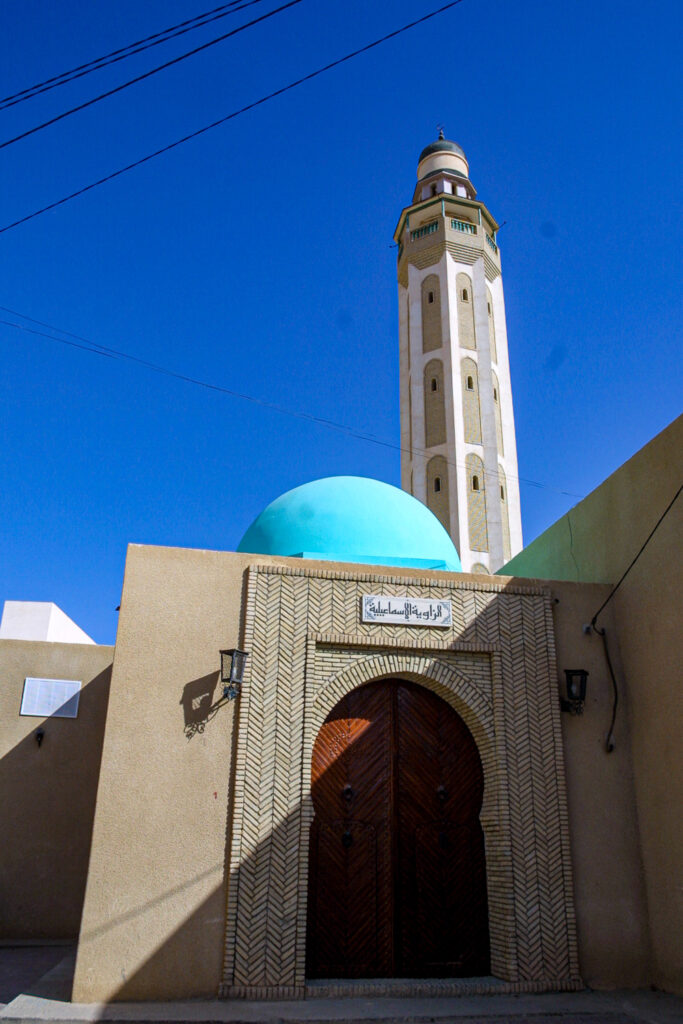
At Tozeur, our restaurant of choice was Mohamed’s Capitol Restaurant where we enjoyed the local Tunisian cuisine. The following is a typical meal for two people:
Harissa – crushed chilli and olive oil eaten with bread
Brik au thon Tunisien – egg and a spinach-like vegetable in a very light crispy batter
Soup aux Legumes – vegetables in a chilli tomato soup base
Couscous Royal – couscous with everything
Kamounia a L’agneau – lamb slow cooked in a chilli tomato base
Jus de Citron – lemon juice au naturale
Thé – a small cup of sweet spearmint tea

The old village of Tamerza was abandoned in 1969 after 22 days of heavy rain destroyed the traditional mud brick structures.
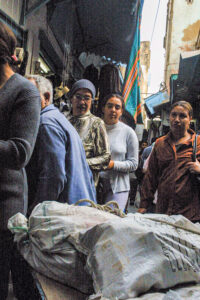
Your visit to Tunis is not complete without a walk through the ancient medina.
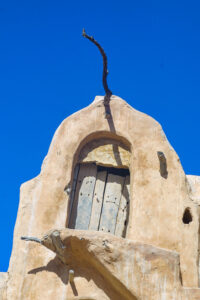
Ksar Oulad Soltane, near Tataouine, is an excellent example of a Berber plains village used by the semi nomadic tribes.
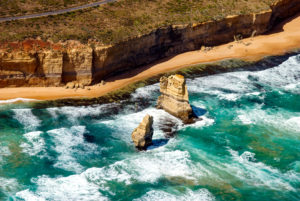
A helicopter ride can be thrilling anywhere, but over the Twelve Apostles, that’s magic.
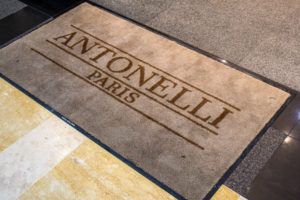
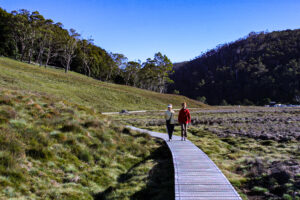
An iconic, wilderness area in Australia’s Southern-most state,Tasmania. Visit it, hike it, see it.